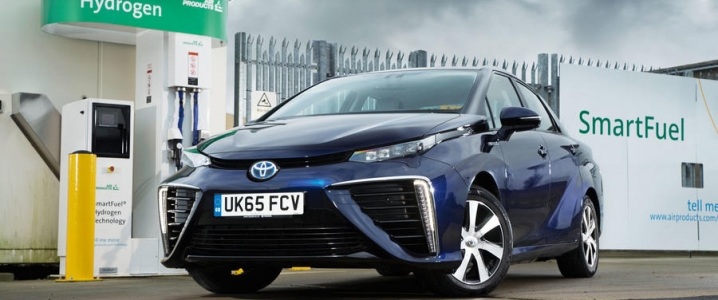As the era of fossil fuels comes to a close, it’s time to start seriously considering an all-electric future, as well as all of the costs and benefits that come along with it. A sea change in the ways that we source our energy is inevitable, and even oil industry supermajors are being forced to come to terms with it. In some cases big oil is even getting in front of the global clean energy shift and becoming part of the renewables charge themselves.
Notably, China and India, two of the world’s most massive economies, are racing toward a fossil-free future even faster than many more-developed countries. Recently the price of electric car batteries has plummeted, making an all-electric future that much more attainable for Asia’s twin giants. Electric cars are projected to comprise 7 percent of new car sales in India by 2030, China is already buying more electric cars than any other nation and its middle class’ buying power will only keep growing, and by 2050, electric vehicles will account for nearly 10 percent of all global demand.
For more than a century, oil has been the impetus for geopolitical conflict and at times outright war, and over time it’s only gotten worse. In fact, a 2013 study showed that oil, while not always the primary factor, can be directly linked to from a quarter to a staggering half of all interstate conflicts in the world between 1973 and 2012. Unfortunately, the end of oil’s reign certainly won’t mean the end of geopolitical conflict.
A shift away from fossil fuels will be the source of many major changes for industries and markets worldwide, and along with this will come a major geopolitical shift. One certain source of friction will be certain components of electric car batteries, which will be in demand like never before. This sudden skyrocketing demand will create a huge market for certain raw materials in often very vulnerable countries. Now, instead of the Western World’s complete dependence on the Middle East, attentions will likely shift to mineral-rich regions of Asia and Africa. Related: How Bad Is Iran’s Oil Situation?
One major example is the case of cobalt in the Democratic Republic of Congo. The country holds the world’s biggest reserves of the mineral, an essential ingredient in electric car batteries. The price of cobalt more than doubled over the last year and will surely continue to skyrocket as the demand for electric cars rises. While the government is already taking steps to protect the poverty-stricken African nation from exploitation by international mining corporations, it will have a hard time shaking the major target on its back in the eyes of the automotive industry.
Another potential breeding ground for conflict is copper. One expert estimated that in order to create the necessary infrastructure for clean energy, we will need an unprecedented amount of copper, equivalent to half the total amount extracted since 1900--over a century’s worth of copper.
In addition to concerns about materials, there are also early warning signs of companies trying to get in on the ground floor in an effort to monopolize various facets the electric car market. Glencore, and Swiss mining company, has been ramping up their cobalt production and is currently expected to own a 40 percent share of the global cobalt supply by 2020--not even 2 years down the road. Meanwhile, lithium, another key component for electric car batteries, is already monopolized by just five companies.
While electric cars promise a brighter, cleaner future, it’s going to be a bumpy road. As the Middle East loses power over the Western World, China will gain leverage, and vulnerable countries like Congo will have to be on the defensive as foreign interests pour into unstable and unprotected marketplaces. The end of fossil fuels may not be imminent, but it’s inevitable; it’s time to start strategizing.
By Haley Zaremba for Oilprice.com
More Top Reads From Oilprice.com:
- The Critical Chokepoint That Could Send Oil To $250
- Mexico Likely To Keep Making The World’s Biggest Oil Hedge
- Thermal Coal Prices Are Soaring



















China will install another 70GW of solar capacity this year and the media will wonder how they got it so wrong yet again. Maybe do some reasearch rather than parroting those who need it to be 2045 to make their bonus.
Battery storage costs dropped 24% in the last year. Do your own math on what that means for 2025.
"For more than a century, oil has been the impetus for geopolitical conflict and at times outright war, and over time it’s only gotten worse. In fact, a 2013 study showed that oil, while not always the primary factor, can be directly linked to from a quarter to a staggering half of all interstate conflicts in the world between 1973 and 2012. . . ."
I'll add that a couple of major oil-producing countries use oil revenue to buy an inordinate amount of weaponry while they consistently threaten if not take over other countries.
If revenue from cobalt and lithium become a world problem, I'll similarly advocate that we avoid buying those minerals. We need to make world peace and conflict-reduction major national and world objectives.